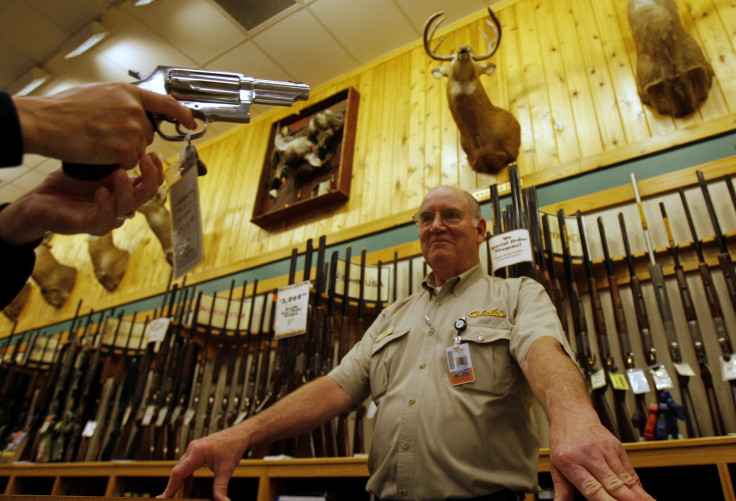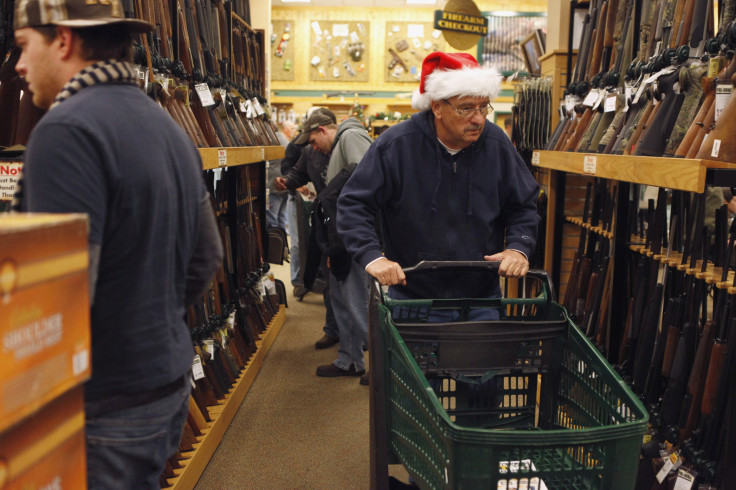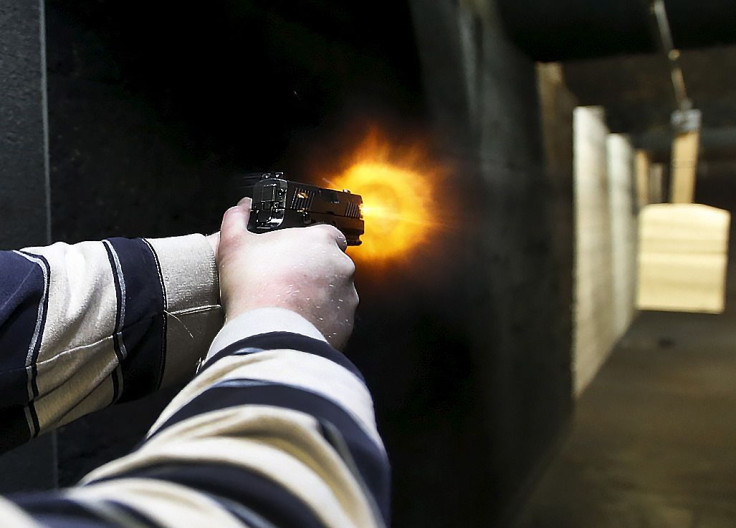Gun Control 2015: Will Cabela's Stop Carrying 8-Round Magazines? Not Likely If Customers Have Their Say On Trinity Church Proposal

Trinity Church in New York City is using its shareholder status to push major U.S. gun retailer Cabela’s to stop carrying firearms with more than an eight round capacity, underscoring the efforts of gun control proponents who continue to look for ways to make the nation safer through stricter limits on weapons and gear. With second amendment politics effectively stopping federal gun control legislation in a calendar year replete with mass shootings, economic pressure from shareholders like Trinity could be one of the only viable ways forward.
Wielding economic leverage through partial ownership of a company works, said Brannon Denning, a professor and gun rights expert at the Cumberland School of Law at Samford University in Alabama. "[But] it can work both ways: On the one hand you know large investors or people who have a large stake in these companies who can try to lean on them." On the other hand, customers may be unhappy if the store they trust to carry products they want suddenly cuts them from shelves, he said.
Trinity has requested that the company stop selling high capacity weapons in a proposal for the next annual shareholders meeting, according to the New York Times.

There has been precedent for both scenarios.
Trinity has had success in the past when trying to influence a major gun retailer in the U.S. Earlier this year, Trinity, which is also a shareholder in Walmart, went to court with the massive chain retailer asking that it no longer carry potentially dangerous weapons on its shelves. While Walmart prevailed in the April ruling on the matter, pressure continued to mount on the retailer as more and more mass shootings were publicized in national media. Four months later, the company announced that it would stop selling most of the lethal weapons it kept in stock – including military-style rifles.
But Cabela’s and Walmart are different corporations with different product lines in stock. While Walmart has a diverse set of products it offers to consumers, Cabela’s puts more of an emphasis on hunting equipment. Data for the specific amount of new gun sales at Cabela’s is not expressly included in the company’s Securities and Exchange Commission yearly filings, however, hunting equipment at the store provides nearly 50 percent of the company’s retail revenue, which includes firearms. Cabela’s is one of the largest firearms retailers in the U.S.
“It’s about the financial dynamic and how significant is the pressure form a shareholder group like that versus the pushback on the other side from the customers of an outfit like Cabela’s,” Nicholas Johnson, a professor of firearms law and policy at Fordham University in New York, said. “You’ve got competing constituencies, I suppose. Does Cabela’s care more about the opinions of its customers or does it care more about a shareholder group like Trinity Church?”
Johnson, and others interviewed for this story, said a 2000 agreement between gun manufacturer Smith & Wesson and the Clinton administration to redesign their weapons, change their distribution and bar children under the age of 18 from entering a gun shop without an adult is the perfect example of customers proving to be the main concern for companies they support. Following the agreement, gun shops and customers around the country, seeing the agreement as capitulation to gun control advocates, boycotted the company. Ultimately, Smith & Wesson decided pleasing their customers was the most important priority and reversed course.
“Cabela’s isn’t going to be selling it and their customers who used to buy stuff like that from them are going to be unhappy. They don’t like unhappy customers,” said Dan Polsby, a law professor and expert on gun control at George Mason University in Fairfax, Virginia. The weapons are "legal and there’s a demand for it, otherwise they wouldn’t be selling it in the first place," he added. "They stop selling it, then what’s going to happen? Somebody else is going to sell it.”
And there are plenty of other places to turn for weapons if Cabela’s, which markets itself as a family-oriented store, taps itself out, like Dicks Sporting Goods, Big 5 or Dunham Sports.

How much leverage a Manhattan church might have on the Nebraska-based Cabela’s is up for debate. The church owns about 4,600 shares of about 69 million total outstanding shares, according to the New York Times, and it is a long-term shareholder. That’s a relatively small amount compared to the overall total.
The wishes of a church in the Financial District of famously-liberal New York City are likely far different from those of the customers who frequent Cabela’s, noted Johnson, of Fordham University. Why would they change now?
“I would not expect Cabela’s to get out of the gun business and would not expect them to capitulate to an [New York] critique of what’s going on,” he said. “Maybe there’s [a Cabela’s] in New York State, but there’s not one in stone’s throw of New York City. The New York City sensibility does not reflect the Cabela’s constituency.”
© Copyright IBTimes 2025. All rights reserved.






















